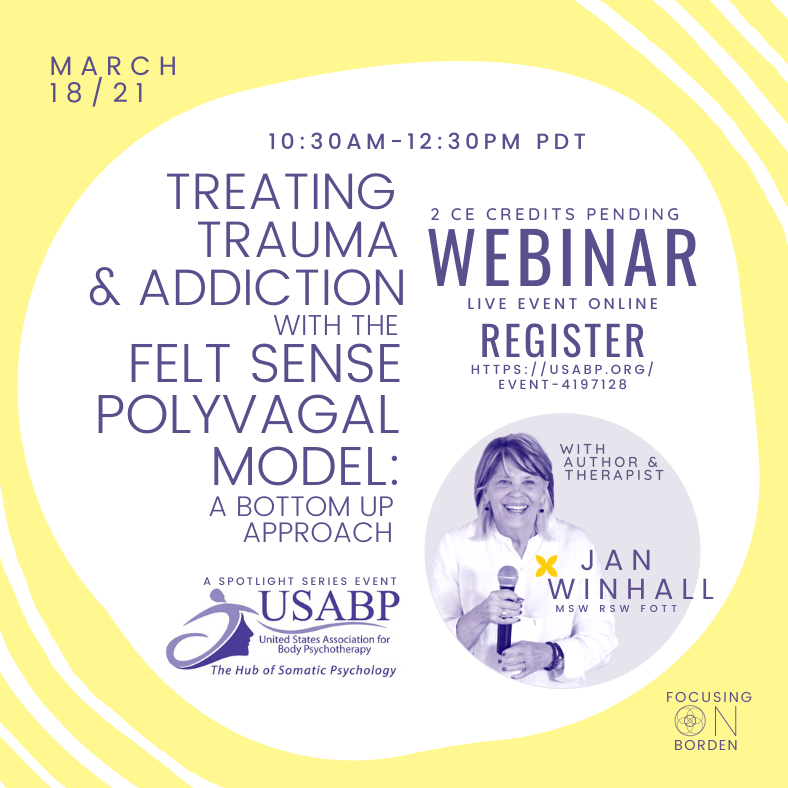Your Hosts


Where & When
Registrants will be emailed detailed conference information prior to the even


Workshop Description
This live webinar (recorded for encore viewing) will present a new way of understanding and treating trauma and addiction. The Felt Sense Polyvagal Model provides a paradigm shift from the traditional disease approach to an embodied understanding of trauma and its underbelly, addiction, through the lens of the autonomic nervous system.
Addictions are seen as the bodies’ attempt to emotionally regulate by acting as propellors that facilitate shifts in our nervous system. The model Integrates Gendlin’s Felt Sense process with Porges Polyvagal theory, enabling us to appreciate addictive behaviors as adaptive responses to maladaptive environments. The model provides a generic framework that can be integrated into any therapeutic modality. The webinar will include a description of how to apply the model with clients through participant exercises, case examples and live demonstration.
Summarizing Main Points of Workshop
• Introducing the journey over forty years of clinical experience in developing the Felt Sense Polyagal Model. Including: Critiquing current top-down ways of treating addiction and the need for a bottom-up approach.
• Describing the evolution of the model, three graphic versions as they developed. First Model: Felt Sense Experience: Feminist, Trauma-informed model includes description of Gendlin’s Felt Sense and Focusing Oriented Psychotherapy
• Second Model: Felt Sense Experience Model of Treating Addiction. Description of Siegel’s Interpersonal Neurobiology as it integrated into the model to build on the theoretical framework. The role of attachment as it relates to addiction and trauma.
• Third Model: The Felt Sense Polyvagal Model to treat Trauma and Addiction. Description of Polyvagal theory as it integrates into the model. Addictions are seen as propellors of neurophysiological state changes in the autonomic nervous system. Introduction of the two graphic versions of the model, client and clinician.
• Application of the Model with Clients. Description of the felt sense experience of each state and how to promote healing through neural exercises such as Focusing Oriented Strategies. Use of Three Circle Practice and working in Groups.
• Live Demonstration of Application of the Felt Sense Polyvagal Model with client.
Learning Objectives
Participants will be able to:
1. describe the two branches of the traditional model of the autonomic nervous system and Porges contribution of the third branch (Polyvagal Theory), the dorsal vagus, and the social engagement system.
2. describe the basic neurophysiological states of the Felt Sense Polyvagal Model for treating addiction and trauma.
3. explain addictive behaviors through the lens of Polyvagal theory.
4. name the four avenues into Gendlin’s concept of Felt Sense and how to apply this embodied practice in psychotherapy.
Contact

USABP
VISIT
https://usabp.org
CONTACT
https://usabp.org/Contact
